News
-
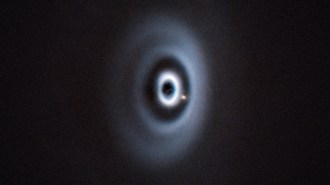 Astronomy
AstronomyA newborn planet munches on gas and dust surrounding its host star
In a first, astronomers imaged a baby planet within a gap in the disk of material around a star, confirming predictions about how rings form.
-
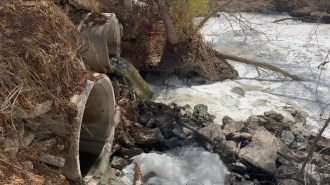 Environment
EnvironmentRiver turbulence can push toxic pollutants into the air
Levels of hydrogen sulfide gas soared near a raging section of the Tijuana River in San Diego, exposing residents to potentially harmful air pollution.
-
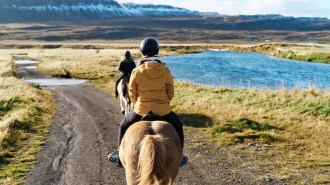 Life
LifeHorses may have become rideable with the help of a genetic mutation
To make horses rideable during domestication, people may have inadvertently targeted a mutation in horses to strengthen their backs and their balance.
By Jake Buehler -
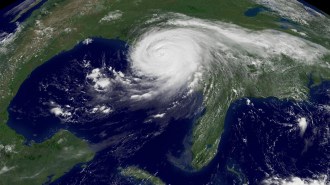 Earth
Earth20 years after Hurricane Katrina, is the U.S. better prepared?
Hurricane forecasts have improved since Katrina, but risks from climate change and budget cuts loom.
-
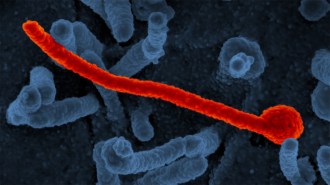 Health & Medicine
Health & MedicineA new antiviral blocks 6 deadly viruses in mice but faces a long road ahead
Scientists report that targeting sugars on virus surfaces stopped multiple infections, though the approach needs much refinement before human trials.
By Payal Dhar -
 Microbes
MicrobesWhat makes chocolate taste so good? It’s the microbes
Beans matter, but microbes may be the real secret to fine chocolate flavor. Scientists are building starter cultures that may improve quality.
-
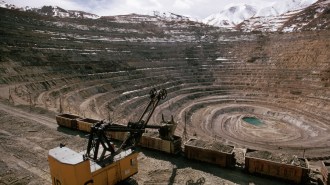 Earth
EarthUseful metals get unearthed in U.S. mines, then they’re tossed
Recovering these metals from mining by-products destined for waste sites could offset the need to import them from elsewhere or open new mines.
By Nikk Ogasa -
 Health & Medicine
Health & MedicineElderly cats with dementia may hold clues for Alzheimer’s
Immune cells in aging cat brains with amyloid beta destroy nerve endings, mimicking the progression of Alzheimer’s disease in humans.
-
 Health & Medicine
Health & MedicineScientists perform the first pig-to-human lung transplant
The genetically modified lung remained viable for nine days, but the recipient’s immune responses need more research, scientists say.
By Skyler Ware -
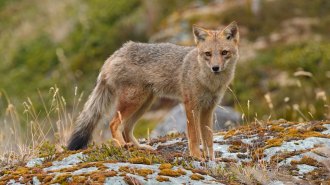 Animals
AnimalsThe mysterious, extinct ‘Fuegian dog’ was actually a semi-tame fox
Historic European accounts long described the canids as domesticated dogs. A new study suggests that’s probably not true.
By Jake Buehler - Planetary Science
NASA’s Webb telescope spotted a new moon orbiting Uranus
Like Uranus's other 28 moons, the newfound object spotted by JWST will be named after a William Shakespeare or Alexander Pope character.
-
 Artificial Intelligence
Artificial IntelligenceCan fake faces make AI training more ethical?
Demographic bias gaps are closing in face recognition, but how training images are sourced is becoming the field’s biggest privacy fight.
By Celina Zhao